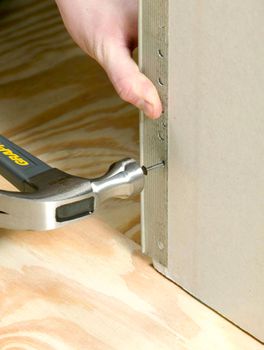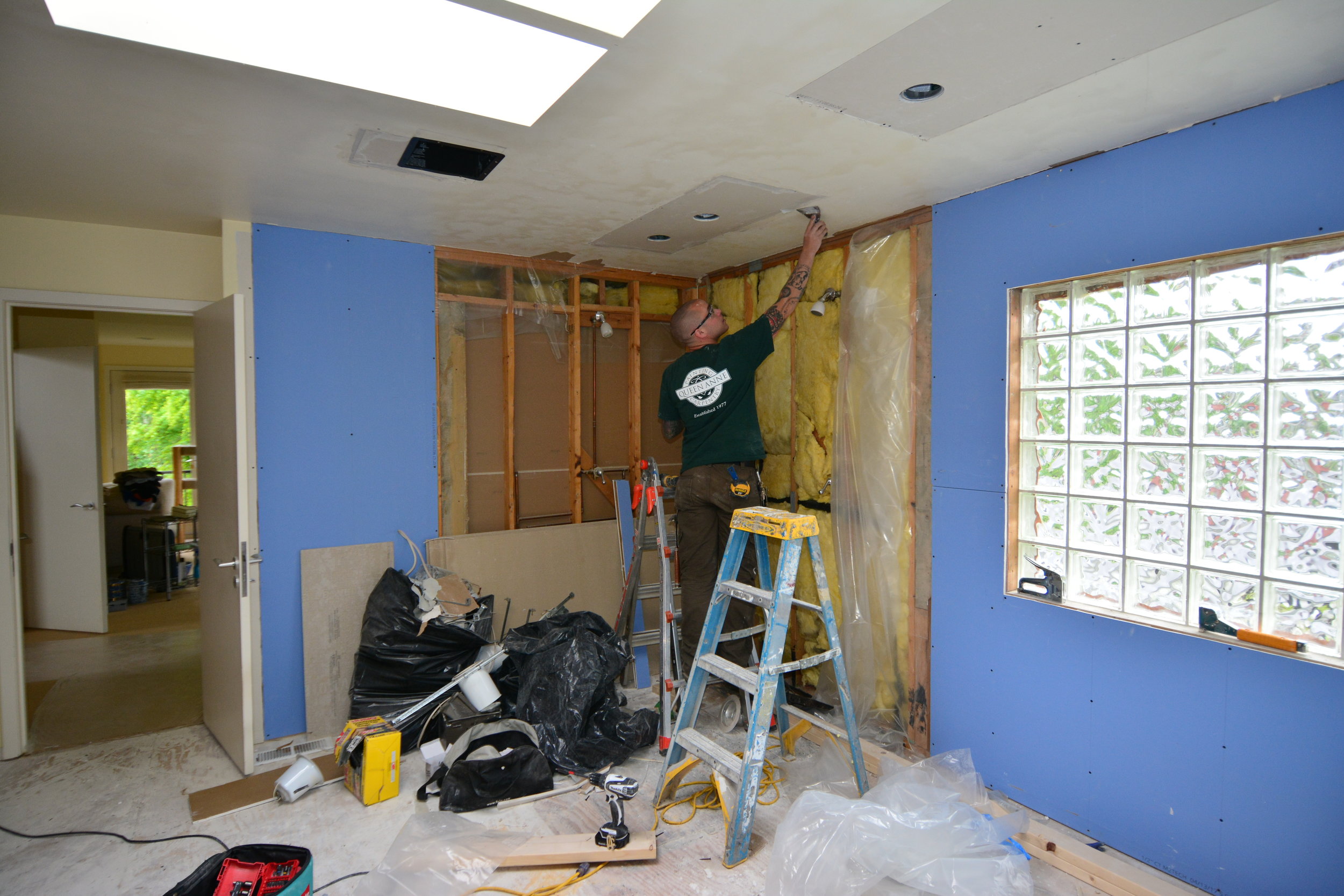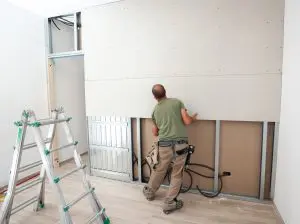
If you are planning on hanging pictures or shelves on your walls, you may want to invest in some drywall screws. These screws are used to attach drywall to a wall stud and come in many sizes and shapes to meet your needs. How can you find the right one for your needs? You need to decide which one to buy and how you will use it.
There are several drywall anchors that are good for hanging heavy objects, but there are also many that do the job just as well. The toggle anchor is a type that uses long bolts to thread through a toggle. It distributes the weight behind the drywall and ensures a secure fit.
The expansion anchor is an advanced type. These anchors are designed to expand when you drive a screw into them. This gives the wall more traction. They can support quite a bit of weight, making them ideal for small shelves and picture frames. You might need to choose more creatively as they can only hold 10-20 pounds of weight.

Another option is to use a mollybol with a barbed-head. This prevents the anchor spinning and grips the drywall surface. You can find molly bolts with both pointed and un-pointed tips.
The first thing to do is create a pilothole. The largest hole you can make should be at least as big as the head of the screw you plan on using. Although a drill or screwdriver is most likely sufficient to tap in the anchor to the drywall, it will be possible to use a wrench to do so. Low speed is the best tip when drilling. A low speed drill can cause the anchor to slip out of your hole and into the wall.
Now it's time for you to attach your drywall anchors. A quality anchor should have a long shank. It will not only be easier to drill the anchor into your drywall but it will also last longer.
Do your research on local building codes while you are at it. Some places have specific requirements for the number of screws used in a particular application. You might need to have a specific number of holes in drywall to be able to install electrical outlets. An alternative is to apply adhesive before attaching yourdrywall. This will ensure that the bond is strong and protects the drywall from any damage.

There are many kinds of screws available. But it's important to know which ones to choose. The fine-thread, sheetrock screws are better suited to metal studs. While the coarse-thread ones work best for wooden studs. Also, ensure the screw you choose to attach to drywall is drywall.
FAQ
How can you avoid being ripped off during renovations to your house?
It is important to understand what you are buying to avoid being scammed. Be sure to read the fine print before you sign any contract. Do not sign unsigned contracts. Always ask for copies of signed contracts.
How long does it take to complete a home renovation?
It all depends on the project's size and how many hours you spend each week. The average homeowner spends three to six hours each week working on the project.
Can I rent a dumpster?
To help you get rid of the debris from your home remodeling project, you can hire a dumpster. Renting a dumpster will help you keep your yard clear of debris and trash.
What should you consider when buying your next home?
You should ensure that you have sufficient funds to cover the closing costs of your new home before purchasing it. You may want to refinance your mortgage if there isn't enough cash.
Is there any way to save money when renovating my home?
Doing the majority of the work yourself can help you save money. Consider reducing the number or people that you employ during renovations. You could also try to find ways to reduce the cost of materials used in the renovation process.
Do you prefer to do walls or floors first?
The best way to start any project is by deciding on what you want to achieve. It is essential to consider how the space will be used, who will use it, and why. This will help you decide if you should go for flooring or wall coverings.
You can choose to put flooring in the first place if you decide to open up your kitchen/living space. Wall coverings are an option if you prefer to keep this space private.
What should I do if I want to hire an architect/builder?
You might find it easier to hire someone to do your home renovations. If you're looking to purchase a home, an architect or builder can help you achieve your goals.
Statistics
- On jumbo loans of more than $636,150, you'll be able to borrow up to 80% of the home's completed value. (kiplinger.com)
- Rather, allot 10% to 15% for a contingency fund to pay for unexpected construction issues. (kiplinger.com)
- They'll usually lend up to 90% of your home's "as-completed" value, but no more than $424,100 in most locales or $636,150 in high-cost areas. (kiplinger.com)
- It is advisable, however, to have a contingency of 10–20 per cent to allow for the unexpected expenses that can arise when renovating older homes. (realhomes.com)
- Most lenders will lend you up to 75% or 80% of the appraised value of your home, but some will go higher. (kiplinger.com)
External Links
How To
Five Things You Need to Know Before You Begin Your Home Renovation
-
Is this something you really want? It's likely that you will need assistance if you plan to tackle a large home improvement project, such as remodeling your kitchen or bathroom or building a new home. But if you don't feel confident enough to tackle such a large task alone, then you might want to reconsider doing so. You could lose a lot of time and money and not reap any real benefits. Instead, hire someone who has experience in this field to assist you. They'll save your time and make it easy for you to have a wonderful place to call home.
-
How much should a project cost? This one may seem obvious, however spending too much on renovation projects could make matters worse. You'll likely have to repay most of your costs at the end. If you have a budget in place, stick with it. Without it, you may end up paying a lot but not getting anything back.
-
Do I prefer to hire professionals or DIY? - There's no right and wrong answer. We recommend hiring professional tradespeople, however, if you're able to afford them. After all, they'll be able to give you advice on how best to proceed with your project. For example, they'll be able install the plumbing correctly, ensure that everything is done safely, and provide you with a warranty when they finish their work. DIY projects require lots of trial and errors, which can mean you'll have many lessons to learn. You will also need to deal with the many issues that arise during the process.
-
Can I afford it - Do not underestimate how expensive a renovation project will cost. Even if you think you can manage it on your own, you might find that you need to borrow money from friends and family just to cover the bills. And if you're planning to sell your current property soon after completing the renovations, you'll definitely need to factor in the price of selling it into your calculations.
-
Where do I start? There is no wrong or right place to start when it comes time to choose where to begin. We recommend that you pick something that you are passionate about. That way, you'll be motivated to keep going, and you'll be less likely to procrastinate. Avoid areas that require constant maintenance. You should avoid redecorating your living room if it is always covered in dirt and dust.